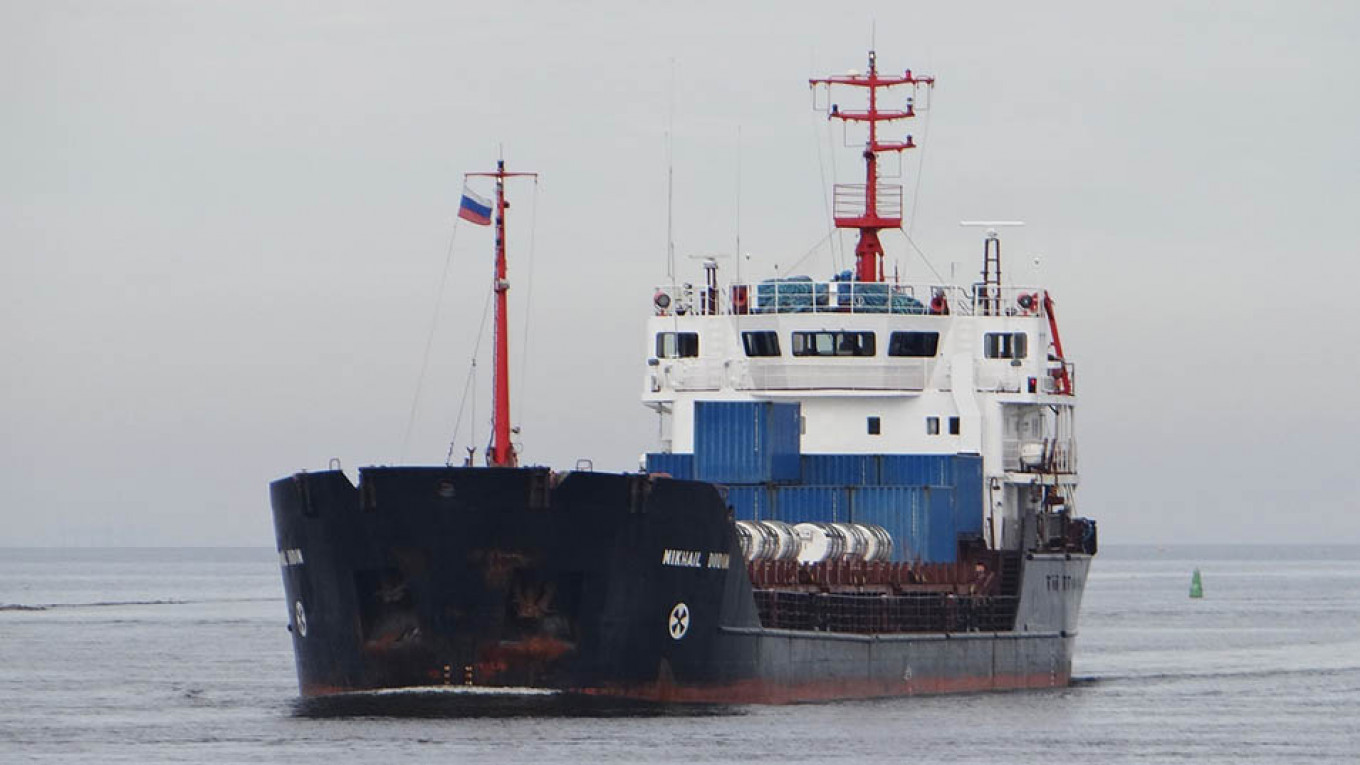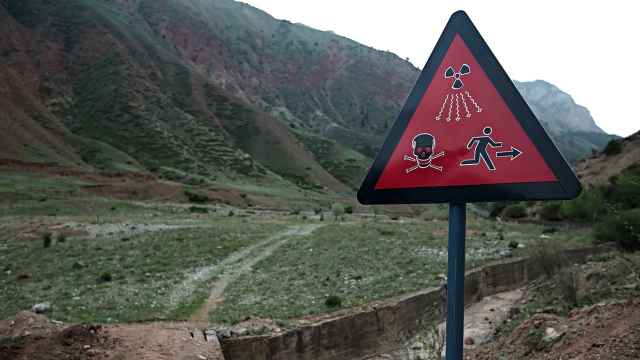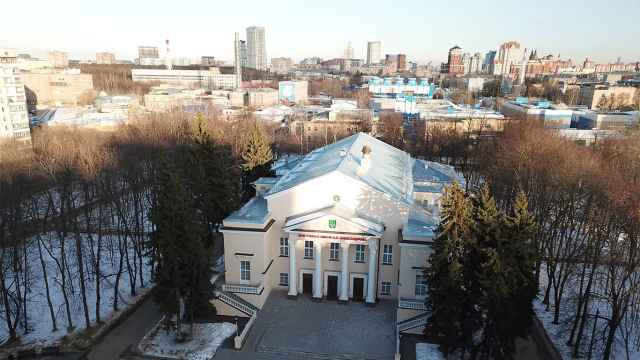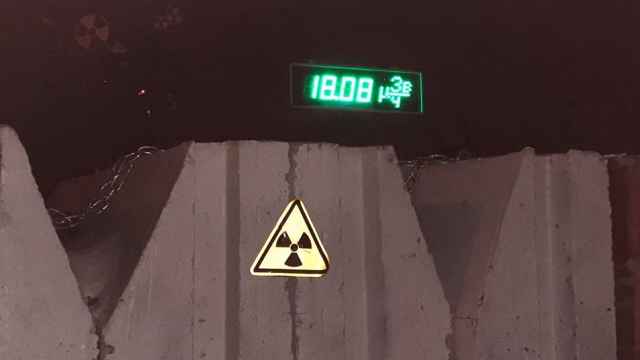Russian activists from Greenpeace environmental campaign group protested on Thursday the transportation of what they say is radioactive waste from Germany.
The vessel Mikhail Dudin which carries depleted uranium — a by-product of manufacturing fuel for nuclear power plants — docked in St. Petersburg last week.
Its cargo was seen being load onto train carriages on Thursday. Greenpeace says it believes the cargo will be transported by train to a storage facility in Siberia.
Greenpeace says the material is imported into Russia from a German uranium enrichment plant of Urenco, the world's second-largest nuclear fuel vendor.
Greenpeace said the radioactive materials known as 'uranium tailings' are 'dangerous and aggressive' and bringing them to Russia is illegal.
Urenco said earlier this week that the company only supplies to countries that have 'comparable safety regulations,' according to German public broadcaster ARD/WDR.
It added that relevant safety checks were made on Russia's facilities eight years ago.
Rosatom, the Russian state nuclear agency, has contracted around 12,000 tones of depleted uranium to be delivered to Russia by 2022.
Rosatom has earlier said that the depleted uranium — which it refers to as recyclable material, not radioactive waste — is not imported into Russia for storage, and will be exported abroad after processing, Russian news agency RBK reported.
Russian state-run TASS news agency reported last month that Tenex — a unit of Rosatom — called Greenpeace's statements "absolutely inconsistent with reality" and "disinformation."
Russian law bans import and export of radioactive waste for storage and recycling.
A Message from The Moscow Times:
Dear readers,
We are facing unprecedented challenges. Russia's Prosecutor General's Office has designated The Moscow Times as an "undesirable" organization, criminalizing our work and putting our staff at risk of prosecution. This follows our earlier unjust labeling as a "foreign agent."
These actions are direct attempts to silence independent journalism in Russia. The authorities claim our work "discredits the decisions of the Russian leadership." We see things differently: we strive to provide accurate, unbiased reporting on Russia.
We, the journalists of The Moscow Times, refuse to be silenced. But to continue our work, we need your help.
Your support, no matter how small, makes a world of difference. If you can, please support us monthly starting from just $2. It's quick to set up, and every contribution makes a significant impact.
By supporting The Moscow Times, you're defending open, independent journalism in the face of repression. Thank you for standing with us.
Remind me later.






